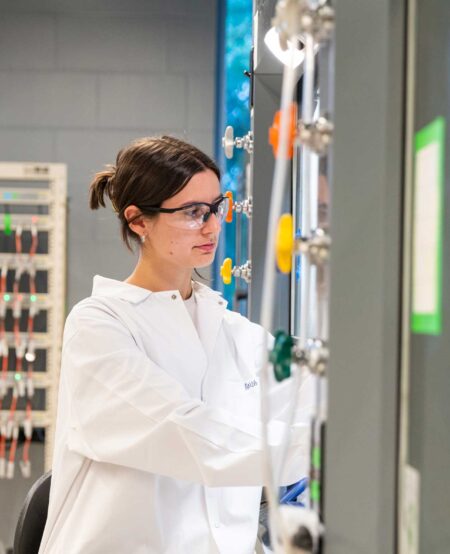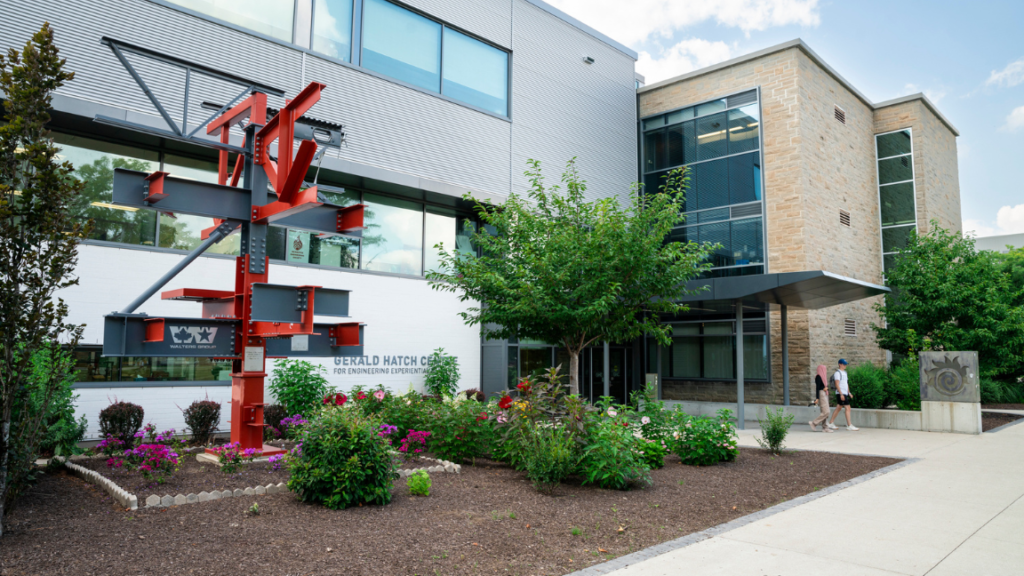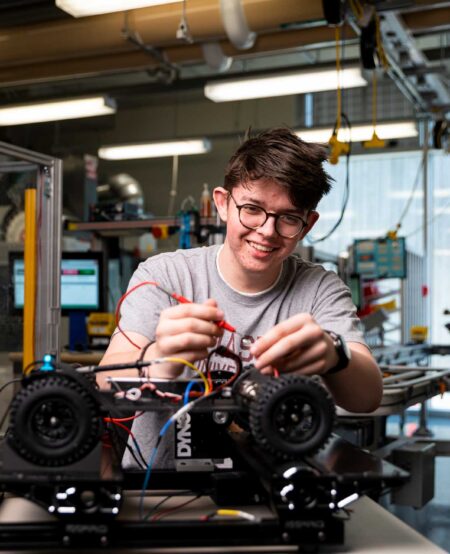- Length
- 5 years
- Degree
- Bachelor of Engineering & Society (Co-op Available)
- Program
- Engineering
- Options
Program highlights
This program shapes resourceful engineers with a multidisciplinary outlook, focusing on the culture, history, and social aspects of technology, alongside civil engineering’s role in shaping interactions between people and their built and natural environments. It emphasizes designing critical societal facilities, using a blend of established theories, techniques, and emerging technologies for complex problem-solving.
Engineering and Society advantage
Core courses include:
- The Culture of Technology
- Case Studies in the History of Technology
- Preventive Engineering: Environmental Perspectives
- Social Control of Technology
In addition, three courses called Inquiry in an Engineering Context, develop skill at formulating questions, carrying out research and communicating findings. These courses help to examine the complex nature of issues like sustainable development and systems failure.
Admission requirements


Careersand research
Example career paths:
- Design and construction of buildings and infrastructure systems
- Earthquake engineering
- Environmental and water resources engineering
- Education
- Government
- Consulting
- Industry
- Construction
Research areas:
- Techniques to increase the performance of concrete, masonry and steel structures; mitigation of damage due to extreme load situations
- Sensing and automation for heavy construction; development of innovative disruptive and intelligent transportation systems.
- Watershed planning and storm water management; groundwater cleanup; energy harvesting from wastewater
- Mitigation of damage due to earthquake, blast and other extreme load situations
- Watershed planning and stormwater management
- Energy harvesting from wastewater
Need moreinformation?
How to apply
Understand every step, from applying, to accepting your offer and joining us on campus!
Department of Civil Engineering
We’re building healthier communities to create a brighter world.




